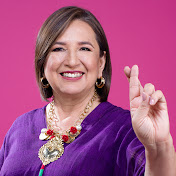“Young anticipated the hubris and resentment to which meritocracy gives rise,” Harvard University political philosopher Michael Sandel writes in his new book, “The Tyranny of Merit.”
A system where success and upward mobility are less a matter of blood than of sweat, grit, talent and test scores seems like an improvement over much of human history — and in many ways it is. But Sandel challenges this American tenet, charting the seismic shift that occurred in our culture and politics beginning in the 1970s.
In MarketWatch’s Value Gap series, we’ve explored ideas to address economic inequality and racism. Whether you agree with him or not, Sandel’s work challenges the reader to question the taken-for-granted assumptions of our culture and society under the guise of meritocracy: Namely, have we ceded too much moral judgment to money and markets?
MarketWatch: Money, as you point out in the book, seems inseparable from our idea of a meritocracy. For good or bad, it is one of the dominant ways we keep score. If we live under the “tyranny of merit,” as you suggest, is money largely to blame?
Sandel: We too readily assume that the money people make is the measure of their contribution to the common good, but this is a mistake. In order to heal our polarization and to aim for a politics of the common good, I think we have to challenge this assumption. We’ve made the mistake of outsourcing our moral judgment of these questions to markets. And this is one of the domains of public judgment that we need to reclaim.
MarketWatch: You place a lot of the blame here on markets, which you say are a poor arbiter of the common good. Can capitalism and morality coexist? Even Adam Smith said that everyone cannot act only in their self-interest.
Sandel: In the 1980s, with [Ronald] Reagan and [Margaret] Thatcher, we had an explicit argument that government is the problem and markets are the solution, but when Reagan and Thatcher were succeeded by center-left governments — Bill Clinton in the U.S., Tony Blair in Britain — they never challenged the fundamental market faith that Reagan and Thatcher articulated, namely that markets are the primary mechanism for achieving the public good.
What their center-left successors, including Barack Obama and Hillary Clinton, did instead is they embraced that market faith to moderate it, to soften its harsh edges. But they didn’t question the premise. They didn’t ask what should be the role and reach of markets in a just society or a good society.
MarketWatch: One thing that struck me reading the book was that the idea of America as a meritocracy is a relatively new one. The Horatio Alger rags-to-riches type story has long been part of the American dream, but you chart the language used by Reagan, the Clintons and Obama to show what a profound shift this was in our politics.
Sandel: The key phrases I track from the ’80s and ’90s and 2000s are: “everyone should be able to rise as far as his or her talents and hard work will take them,” “what you learn is what you earn,” or in Obama’s version, “you can make it if you try.” This language, along with the emphasis of getting a university degree so that you can compete and win in the global economy, I call the rhetoric of rising.
“
‘We should focus more on the dignity of work. What are the conditions for creating and affirming and rewarding work of all kinds that contribute to common good, whether or not they are performed by people with highly prized credentials?’
”
MarketWatch: To what extent did Joe Biden employ this same rhetoric of rising during the campaign?
Sandel: A little bit less. In subtle ways, because on the one hand, Biden is very much a mainstream member of the Democratic establishment. And yet, in one respect, he is an outsider to that mainstream. He was the first Democratic nominee in 36 years without an Ivy League degree.
He does speak from time to time about the dignity of work. He quotes his father as telling him that work isn’t just about making a living; it’s not just about money, it is about respect.
Well, this often-told anecdote could be the germ of a larger political vision focused on the dignity of work rather than on the rhetoric of rising. It would give him a way of speaking to working people who have felt excluded and looked down upon by the professional elites who have come to predominate in the Democratic Party.
MarketWatch: You also take aim at the fact that in a meritocracy, people sometimes pretend that luck doesn’t exist. I hear it all the time from CEOs and other wildly successful people. “I don’t believe in luck,” they say. Why do you think that is? I mean, Darwin showed that randomness is at the heart of evolution. So why do people insist it’s all about the success of the fittest, and not the luckiest?
Sandel: It’s true, and it is worth asking why. To acknowledge the role of luck requires the successful to insist less on the idea that their success is wholly their own doing. If we don’t believe that luck has played much of a part in defining winners and losers, then it is much easier to say, “My success is my doing, and those who struggle have no one to blame but themselves.” This can be corrosive to the common good — that is the dark side of merit.
MarketWatch: You go even further, and suggest that we should leave college admissions at prestigious universities to a lottery, choosing the new class at random from a pool of qualified applicants.
Sandel: Luck is already present in the process, but its role is obscured. The point of the lottery proposal is to make more evident the role that luck plays by formalizing it. The idea is to make vivid the role of luck that already has a lot to do with who gets in, who doesn’t, who succeeds, who struggles and so on.
MarketWatch: The college admissions scandal, as you note, exposed the seedy underbelly of the college admissions rat race. But is the meritocracy the villain of the story, or is it that in America, money can trump merit?
Sandel: It is both. Even if you supposed the SAT could be what it was originally believed to be — a test of pure aptitude, untainted by privilege, background, upbringing and education; an instrument of fairness; a test of pure brainpower or aptitude. Suppose it could be made into that, which of course it couldn’t be. Then would it be a fair way of allocating places in the university?
I would say no. Because if it is testing native intellectual endowment rather than what one has learned, why is that any less morally arbitrary or the product of luck than the family into which one was born?
MarketWatch: But what is wrong with a university trying to admit the smartest, most capable students out there?
Sandel: I am not blaming universities as the primary culprits. It’s the way in which the society as a whole and the economy have tasked universities in the role of arbiters of opportunity — they confer the credentials and define the merit that the system prizes and rewards — that I think is what we should reconsider.
Do we want to live in a country where a necessary condition for dignified work is a four-year college degree, when nearly two-thirds of Americans don’t have a four-year degree? That seems like a folly, a recipe for frustration and resentment.
Meritocracy is not, even at its best, an alternative to inequality. It is a justification of inequality.
“
‘The unquestioned market faith and the meritocratic conviction that the rich are rich because they are more deserving than the poor — these, taken together, are corrosive of the common good.’
”
MarketWatch: So what should we replace the current system with?
Sandel: What we really need is a political agenda that rethinks that, and that focuses less on the rhetoric of rising, less on arming individuals for meritocratic competition as if that were a solution to inequality, and we should focus more on the dignity of work. What are the conditions for creating and affirming and rewarding work of all kinds that contribute to common good, whether or not they are performed by people with highly prized credentials?
MarketWatch: Isn’t working to get 100% of students a four-year degree in the interest of the common good?
Sandel: Encouraging people to go to college is a good thing. Broadening access to those who can’t afford it, that is even better. But I think we need to broaden our notion of what it means to support the various forms of education that people need to prepare themselves for the work they do, and the contributions they make. We woefully underinvest in state colleges, in two-year community colleges, and in vocational and technical training.
Not only do we woefully underinvest in these forms of learning, but we’ve established a steep hierarchy of prestige between four-year colleges and universities and these other forms of learning. I think we should reconsider that steep hierarchy of esteem. This is actually more acute in the U.S. than in many European countries.
MarketWatch: But the rising made possible isn’t just rhetoric, right? For all its faults, the current university system does fuel a certain amount of social mobility.
Sandel: The real problem with the rhetoric of rising and with the idea of individual upward mobility through getting a four-year college degree through a brand-name place — well, two problems:
First, actual rates of upward mobility from one generation to the next are less in the United States than in many European countries and in Canada. It isn’t easy to rise from the bottom fifth to the top fifth; depending on the study, 5% to 10% manage that. Less than half who are born poor even make it to the middle class.
The even deeper problem isn’t only that social mobility has stalled. It’s that as a response to the deep inequalities that have resulted from the market-driven globalization of recent decades, individual upward mobility through higher education is too weak a response. It is not an answer to inequality.
MarketWatch: So to fix what is broken in our society, leaders should put less faith in markets and more faith in what?
Sandel: What is broken is an orientation to the common good. The unquestioned market faith and the meritocratic conviction that the rich are rich because they are more deserving than the poor — these, taken together, are corrosive of the common good. If those who land on top believe and have reason to believe that their success is their own doing, and if they also believe that those who struggle have no one to blame but themselves, then it is very difficult to summon a sense of solidarity and mutual responsibility for each other.
When you add to that the sense that elites look down on working people, we have a way of understanding the populist backlash against elites that have upended politics since 2016.
“
‘The Black Lives Matter movement is one of the most hopeful signs in an otherwise bleak political landscape for a broader public debate about justice and the common good — a multiracial, multi-generational movement that is raising large and long-neglected questions about the meaning of a just society.’
”
MarketWatch: Let’s imagine that Congress passed a universal income and made college tuition and health care free for all. Would that solve the problems with merit you have laid out?
Sandel: You just described a more generous safety net and a more generous welfare state. I am all in favor of those things, but also say we can have all those things and still not fundamentally address many of the ills that afflict our civic life, which is why I think we need to put right at the center of the agenda the dignity of work. That is the debate that can put in question the assumption that the money people make is the measure of contribution to common good.
In many cases, the market verdict misjudges who really does contribute most, and we are seeing this during the pandemic. Many of the workers we overlook, we are beginning to recognize in this moment, we are calling them essential workers.
We all know a high-speed trader really doesn’t contribute 800 times more to the common good than a schoolteacher or a nurse. Even most market enthusiasts would be hard pressed to say otherwise.
MarketWatch: Who, then, should define the common good? Free-market advocates would say the market is a better judge of price than, say, some government agency might be.
Sandel: I am not proposing an agency to decide it. This should be a subject for citizens to debate. We do to a certain extent when we debate what the minimum wage should be. Well, should certain socially important jobs and roles that are not adequately valued by the market, should there be a wage subsidy to better reflect their value? That is the kind of debate we should have.
MarketWatch: One final question. We haven’t spoken yet about the role of race in the meritocracy and in terms of economic inequality. To what extent is racial injustice tied to the faults of the rhetoric of rising you address?
Sandel: The Black Lives Matter movement is one of the most hopeful signs in an otherwise bleak political landscape for a broader public debate about justice and the common good — a multiracial, multi-generational movement that is raising large and long-neglected questions about the meaning of a just society.
Now, the very fact that what prompted the movement were egregious instances of police violence against Black men and women is a further reminder that achieving a just society is not only about perfecting the meritocracy. A more perfect meritocracy with greater individual upward mobility would not be an adequate answer to racial injustice.
As the Black Lives Matter movement makes abundantly clear, we need a broader approach to questions of racial injustice, and also injustices associated with economic inequalities of income and wealth. Ideally, we should confront racial injustice and injustices of class inequality together rather than as separate subjects — but it’s clear, in any case, that the rhetoric of rising is not an adequate answer.
This interview has been edited for length and clarity.
This content was originally published here.
EL 2 DE JUNIO DEL 2024 VOTA PARA MANTENER
TU LIBERTAD, LA DEMOCRACIA Y EL RESPETO A LA CONSTITUCIÓN.
VOTA POR XÓCHITL












Comentarios